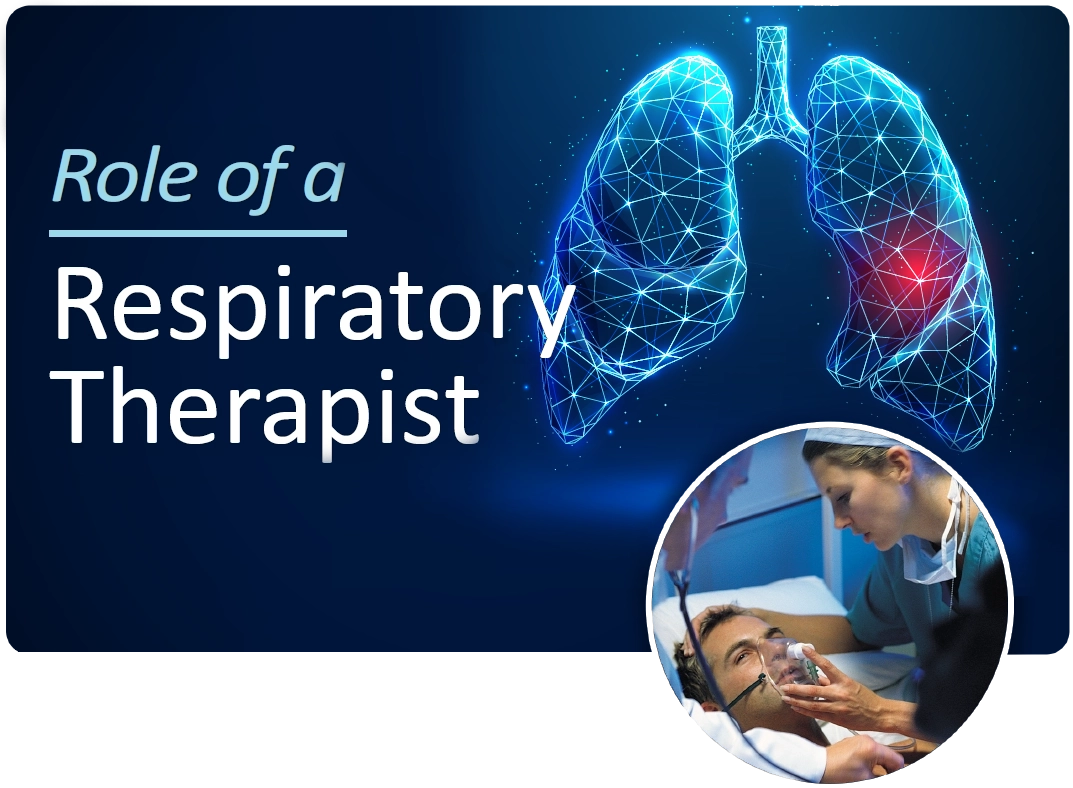
Breathe Easy:
Your Pathway to a Career as a Respiratory Therapist
Respiratory Therapists (RTs) are critical in assessing, treating, and managing patients with respiratory disorders. They work with individuals who suffer from conditions such as asthma, COPD, or other breathing issues and play a key role in emergency care and long-term therapy management.
Step 1: High School Preparation
GOAL: Build a strong academic foundation for college-level respiratory care programs.
Recommended Courses:
- Anatomy & Physiology
- Biology
- Chemistry
- English Composition / Literature
- College Readiness Math
Actions:
- Take the ACT and/or the SAT
- Take advantage of AP classes if offered
- Speak with your guidance counselor about:
- Dual credit opportunities
- Financial aid
- Local college partnerships
- Contact human resources departments at local hospitals and health care facilities to learn more about job shadow or observation opportunities and entry level positions offered for high school students.
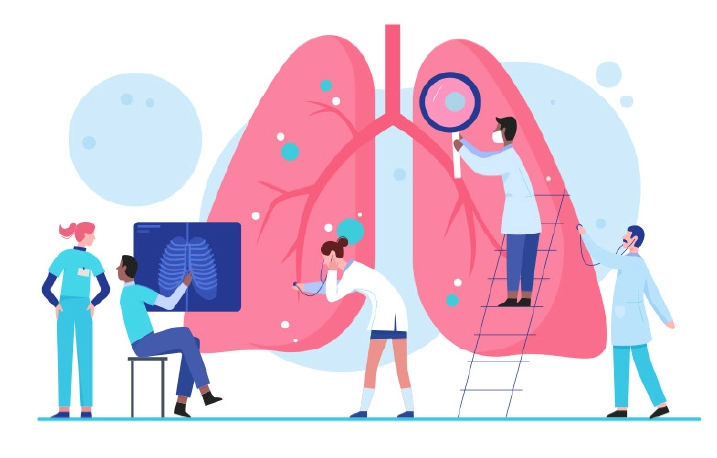
Resources:
- Be-An-RT.org: Inspires students by explaining what RTs do, where they work, and why the profession matters—great videos, FAQs, and school search tools.
- SCK Launch: Regional career exploration tool for Kentucky students.
Step 2: Enroll in an Accredited College Program
GOAL: Complete an approved program in Respiratory Therapy.
Health Care Student Scholarship Opportunities:
Click here for information

Respiratory Therapist College Programs
Search for college programs in Respiratory Therapy near you.
These programs usually take two (2) years and combine classroom learning with hands-on clinical experience.
Examples of roles that can be obtained with this degree:
- Certified Respiratory Therapist (CRT) or Registered Respiratory Therapist (RRT)
Associate Degree RT Programs in KY
- Bluegrass Community & Technical College (Lexington)
- Jefferson Community & Technical College (Louisville)
- Madisonville Community College (Madisonville)
- Southeast Kentucky Community & Technical College (Pineville)
- Southeast Kentucky Community & Tech College (Whitesburg)
- Northeast Kentucky Consortium – formed by Morehead State, Maysville Community & Technical College and Ashland Community & Technical College. General Education courses may be taken at any member institution, and respiratory care courses will be taken at the Rowan County campus of Maysville Community & Technical College (Maysville)
- Big Sandy Community & Technical College (Prestonsburg)
- Southcentral Kentucky Community & Technical College (Bowling Green)
- Somerset Community College (London)
- Elizabethtown Community & Technical College (Elizabethtown)
Examples of roles that can be obtained with this degree:
- Certified Respiratory Therapist (CRT) or Registered Respiratory Therapist (RRT)
- Senior Respiratory Therapist
- Medical Services Manager
- Medical Sales Executive
- Disease Manager
- Clinical Specialist
- Respiratory Therapist Director
Bachelor Degree RT Programs in KY
- Bellarmine University (Louisville)
- Northern Kentucky University (Highland Heights)
- Madisonville Community College/Murray State University (Madisonville)
Master’s Degree RT Programs in KY
- Bellarmine University (Louisville)
Step 3: Begin Working in the Field
GOAL: Gain knowledge and experience after high school or while obtaining your Respiratory Therapy education.
Check with your local hospital or health care
facilities for opportunities:
- Shadow or volunteer
- Entry level positions for high school students
- Summer health care camps for students
College Prior to Acceptance into Respiratory Therapy Program
Entry-Level hospital roles may include:
- Food Services
- Environmental Services
- Patient Transport
- Phlebotomy
- Nursing Assistant
- Electrocardiographic and Cardiac Monitoring Technician (EKG Tech)
- Some hospitals utilize this role for those students who are seeking Respiratory Therapy degrees
- Respiratory Therapy Student positions – role for Respiratory Therapy students who intend to work while in school.
- Requires Limited Mandatory (Student License)
- Three-year license that expires upon graduation. To continue working, individuals must apply immediately for a Temporary License with KBRC.
- Requires Limited Mandatory (Student License)
- Contact Human Resources departments at local hospitals and health care facilities to learn more specific job opportunities they may offer for students accepted into a Respiratory Therapy program.
- Some hospitals may offer apprentice programs for Respiratory Therapy students.

Hospital Career Search
Visit the Kentucky Hospital Job Center
Search for current positions open at Kentucky hospitals, leading to exceptional careers
Step 4: Pass National Certification Exams
GOAL: Earn credentials needed to practice professionally.
- Pass the National Board for Respiratory Care (NBRC) credentialing
- Upon passing the exam, candidates earn the Certified Respiratory Therapist (CRT) credential. Those achieving a high enough score become eligible to take the Clinical Simulation Examination (CSE), which can lead to obtaining the Registered Respiratory Therapist (RRT) credential.
- Certified Respiratory Therapist (CRT) = Entry Level credential required to practice
- Registered Respiratory Therapist (RRT) = Advanced credential for higher pay, leadership and specialization
- Additional specialty exams
- Neonatal-Pediatric
- Adult Critical Care
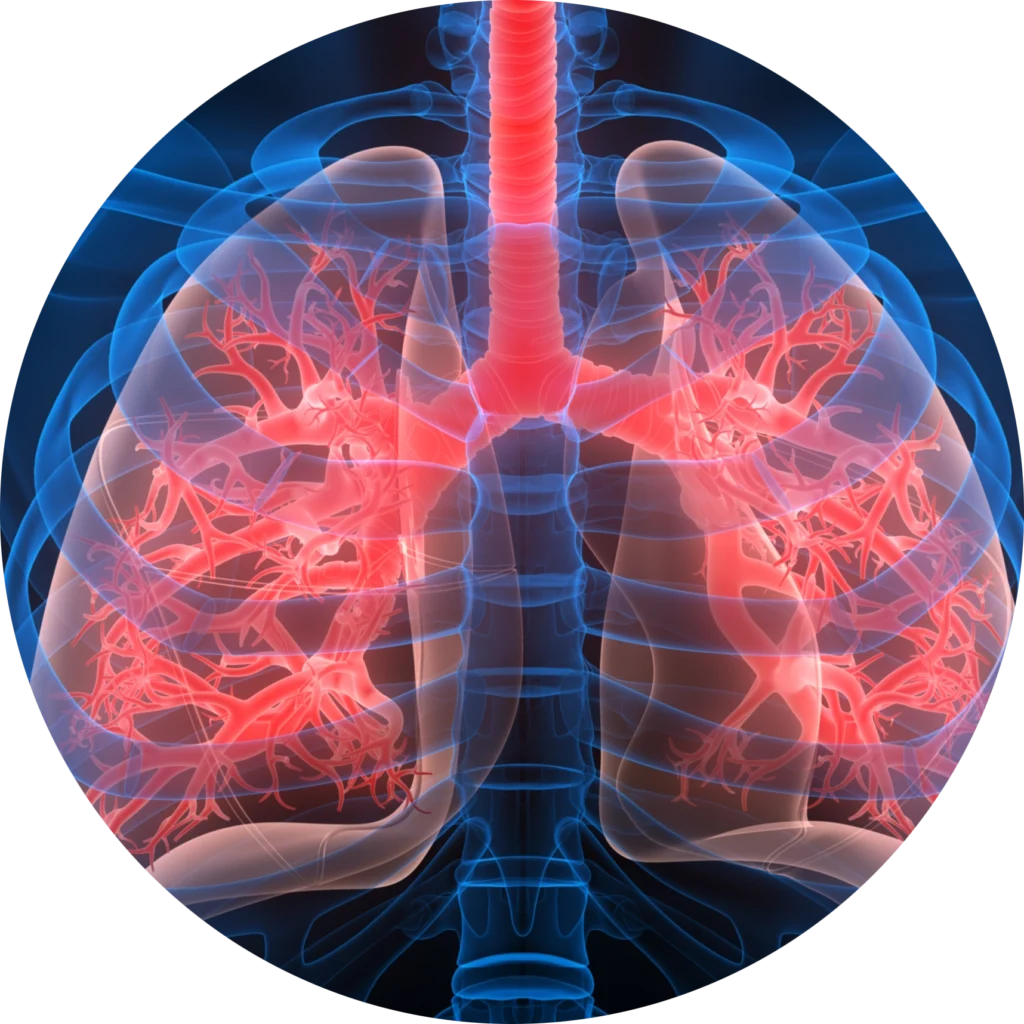
Visit: https://www.nbrc.org for practice exams, exam outlines, application tools, and maintenance pathways.
Step 5: Obtain State Licensure

GOAL: Get licensed to practice in Kentucky.
Licensing in Kentucky is governed by the Kentucky Board for Respiratory Care (KBRC)
Requirements include:
- Completion of an NBRC-accredited degree program
- Passing NBRC exams
- Application submission with documentation and fees

Step 6: Professional Growth & Engagement
- Required every 5 years to maintain NBRC credentials
- Can be completed via courses, seminars, or retesting
Professional Organizations
- American Association for Respiratory Care (AARC)
- National advocacy, scholarships, student memberships, mentorship, continuing education
- Kentucky Society for Respiratory Care (KSRC)
- State-level conferences, CE credits, networking
- Bachelor’s or Master’s in Respiratory Care (offered at select universities)
- Specialty NBRC credentials in:
- Neonatal/Pediatric Care
- Adult Critical Care
- Pulmonary Function Testing
- Transition to education, leadership, or research roles

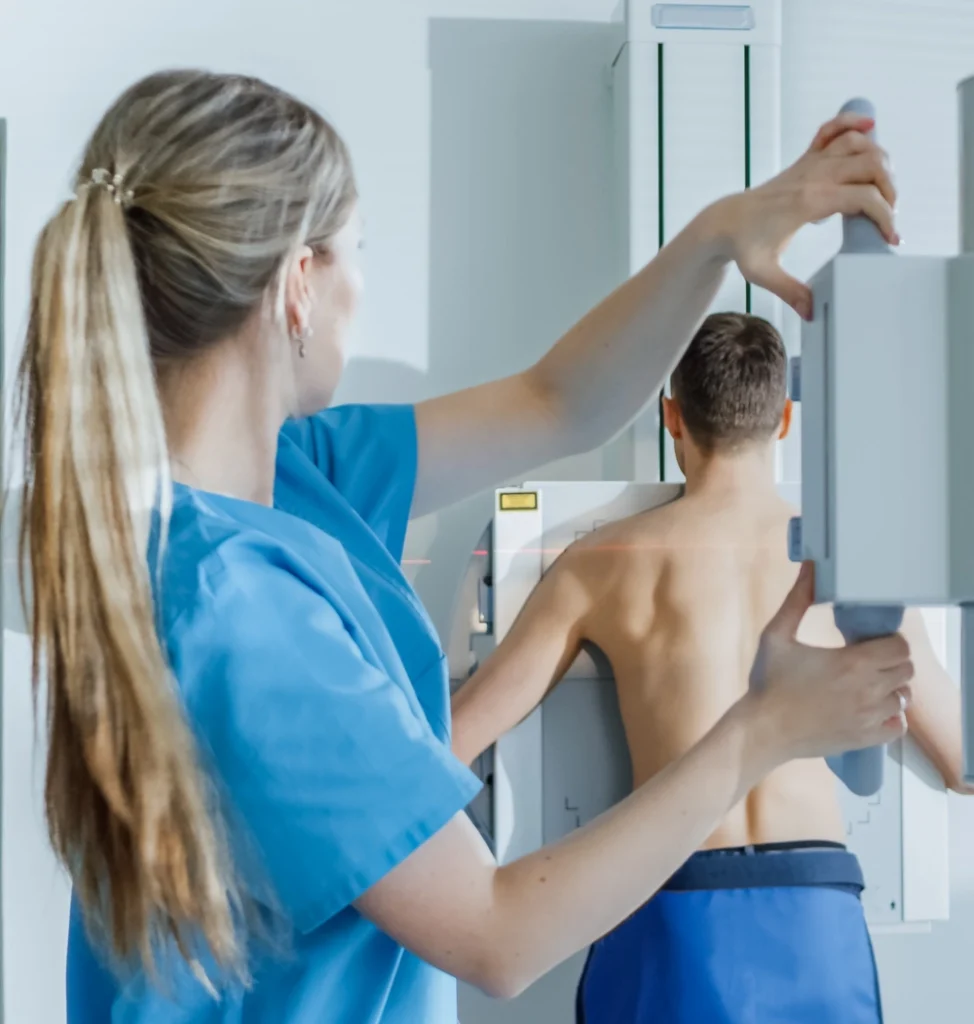
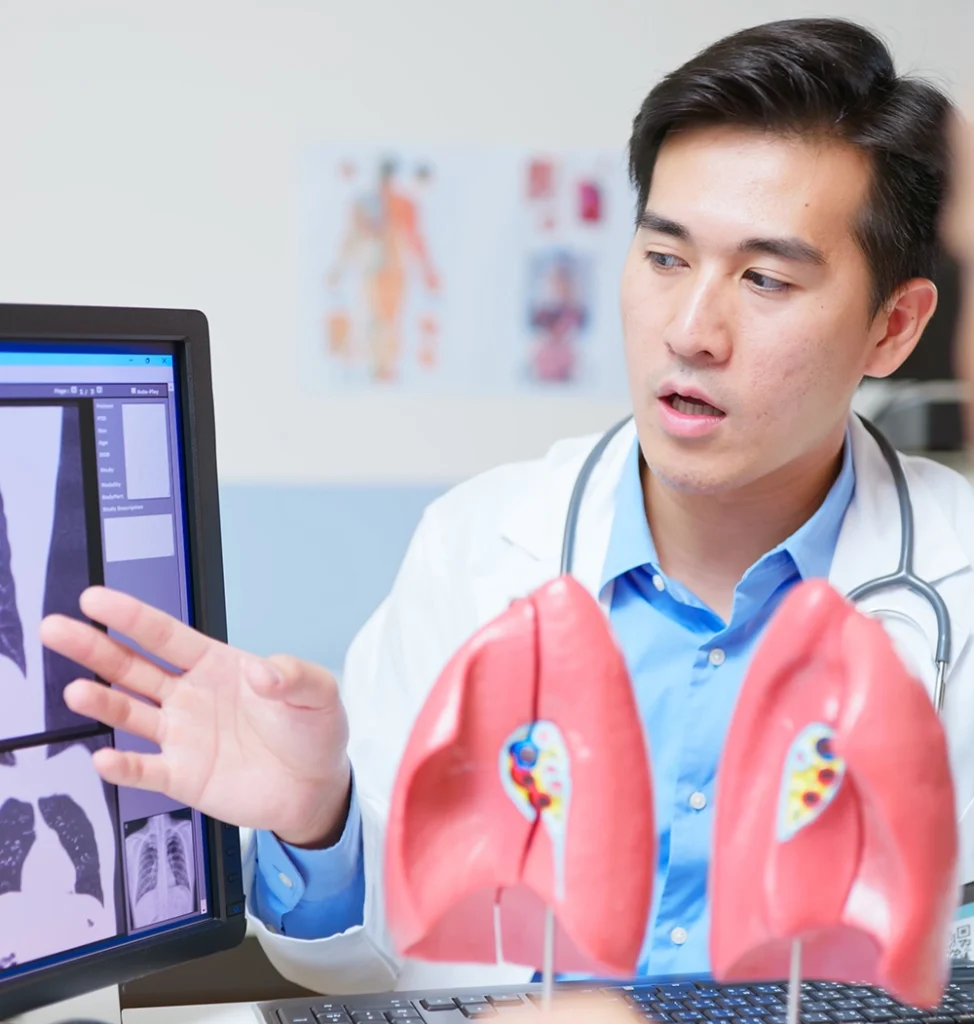
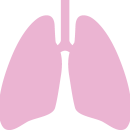
BREATHE EASY:
Your Pathway to a Career as a
Respiratory Therapist
Step 1: High School Preparation
- Take college preparatory courses
- Take the ACT
- Speak with your guidance counselor
- Contact HR at hospitals to job shadow

Step 2: Enroll in an Accredited College Program
Obtain an associate or higher degree in Respiratory Therapy

Step 3: Begin Working in the Field

Entry Level Roles – Generally on the job training is provided
- Respiratory Aide
- EKG Tech
- Any entry level healthcare role

Roles while attending Respiratory Therapy Program
- Respiratory Therapist Student – generally requires student in RT program and RT student license issued by the state

Step 4: Pass National Certification Exams (NBRC)
Pass exams for National Respiratory Therapist (CRT) and Registered Respiratory Therapist (RRT).

Step 5: Obtain KY State Licensure Requirements
- Completion of a NBRC-Accredited college degree program
- Passing NBRC Exam

Step 6: Start Practicing as a Respiratory Therapist

Roles after College – successful completion of national exam and state licensure
Certified Respiratory Therapist (CRT)
Registered Respiratory Therapist (RRT) – generally preferred over CRT

Advanced Roles as a Respiratory Therapist
- Specialty certifications in areas such as
- Neonate/Pediatric Care
- Adult Critical Care
- Pulmonary Function Testing
- Training/Education Roles
- Leadership Roles
- Supervisor
- Manager
- Director

Step 7: Professional Growth & Engagement
- Maintain Continuing Education (CE) credits
- Get involved in Professional Organizations
- American Association for Respiratory Care
- Kentucky Society for Respiratory Care
